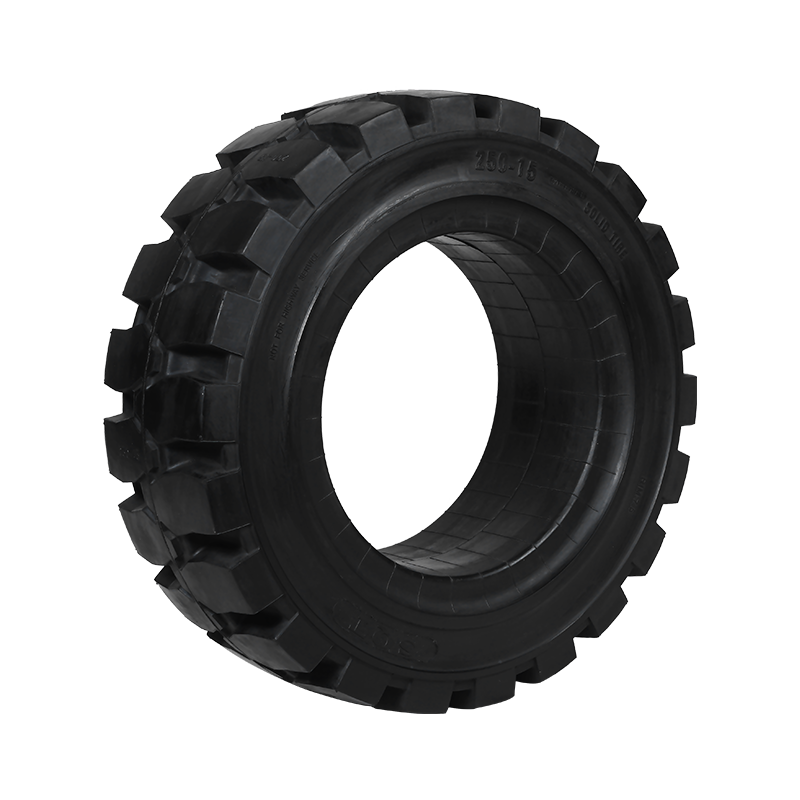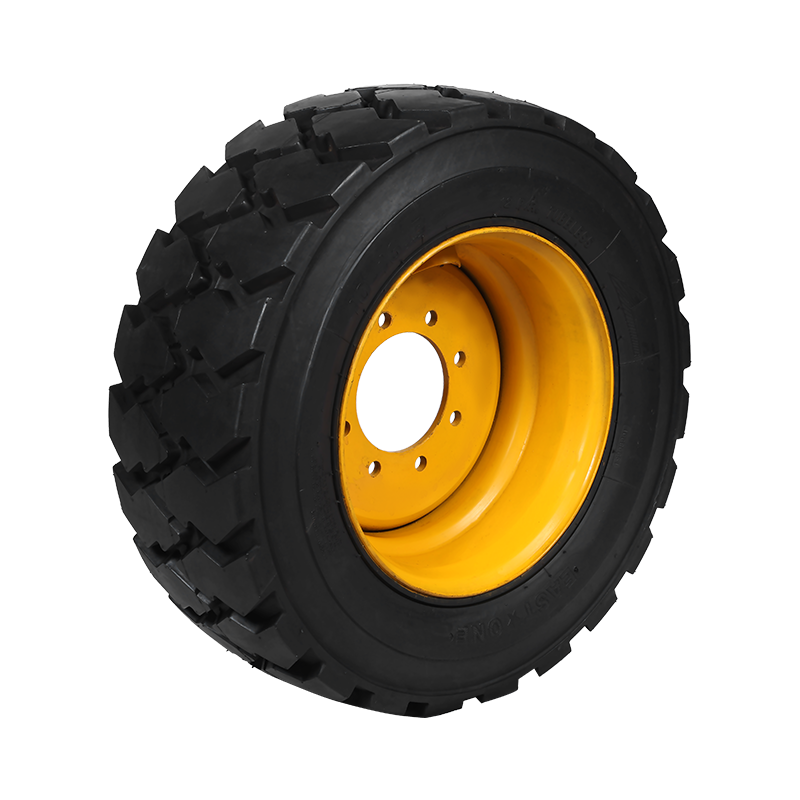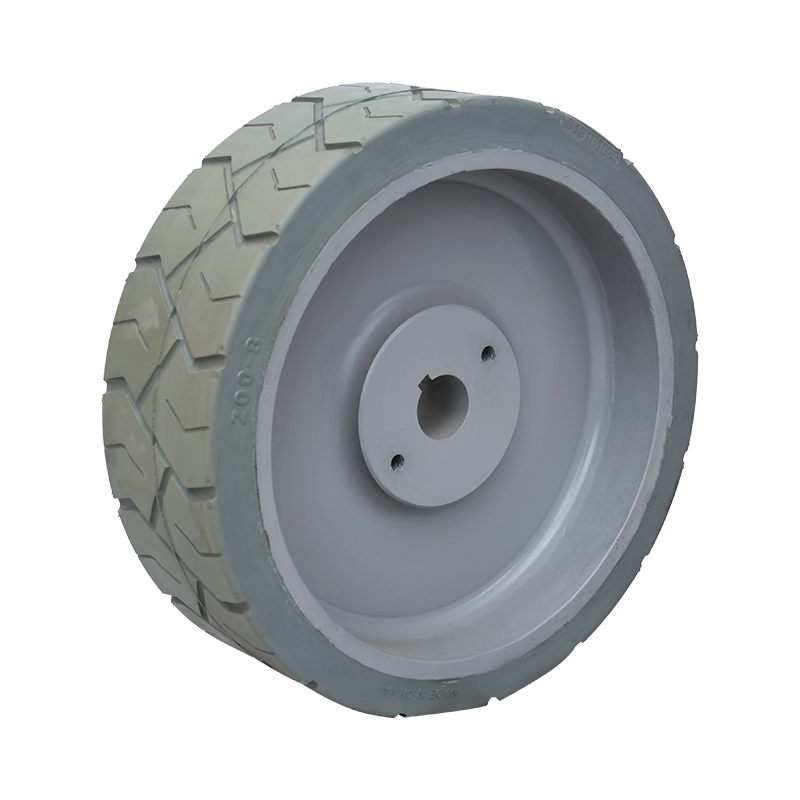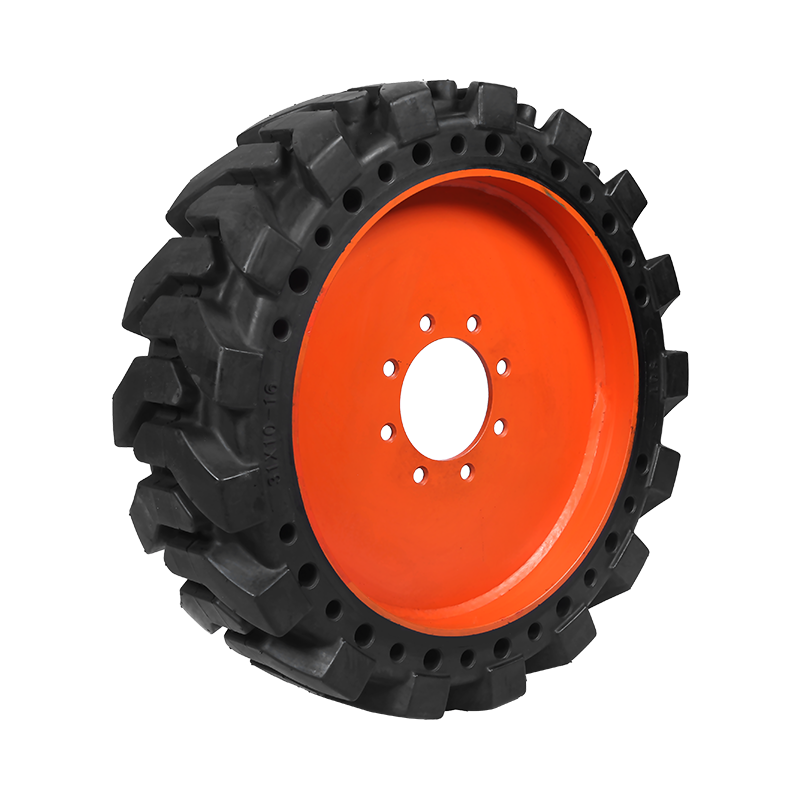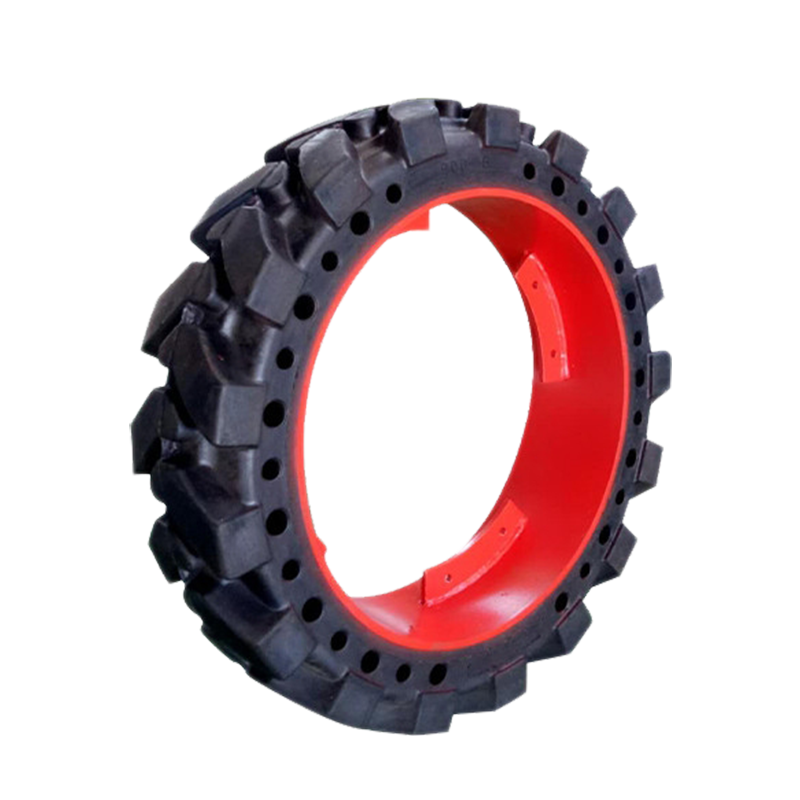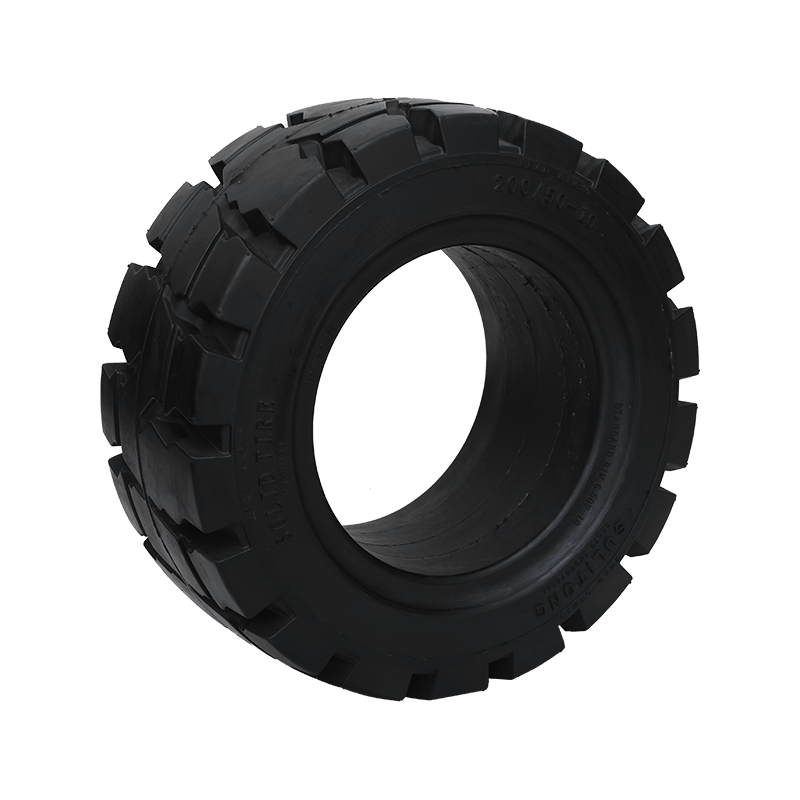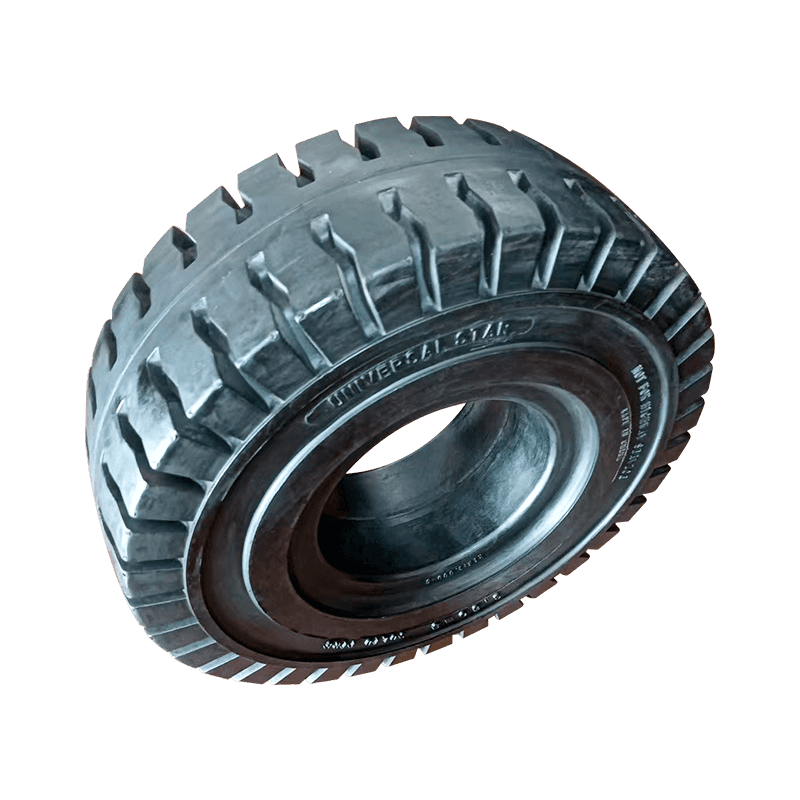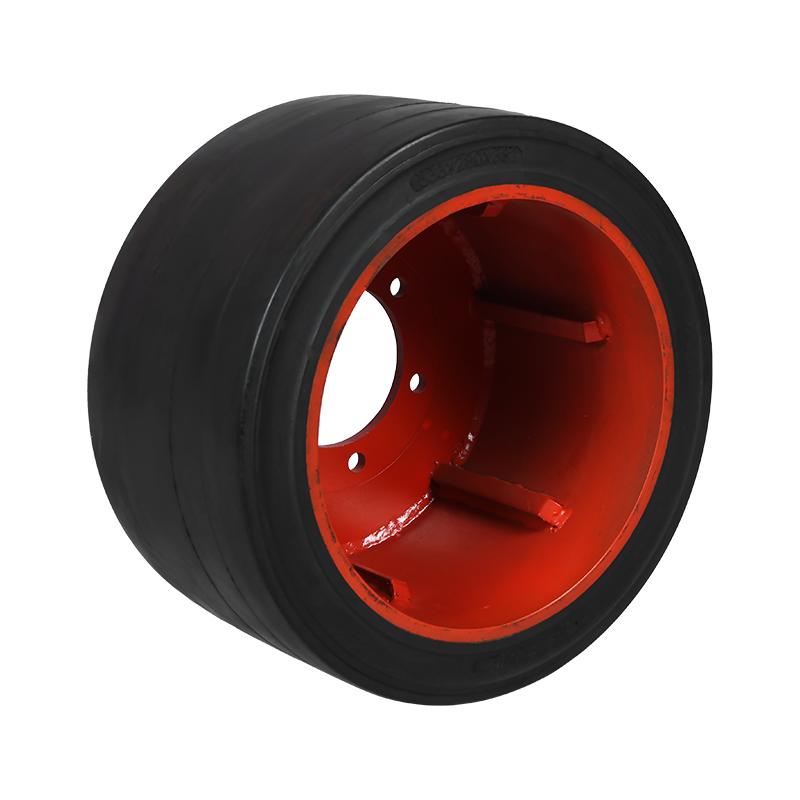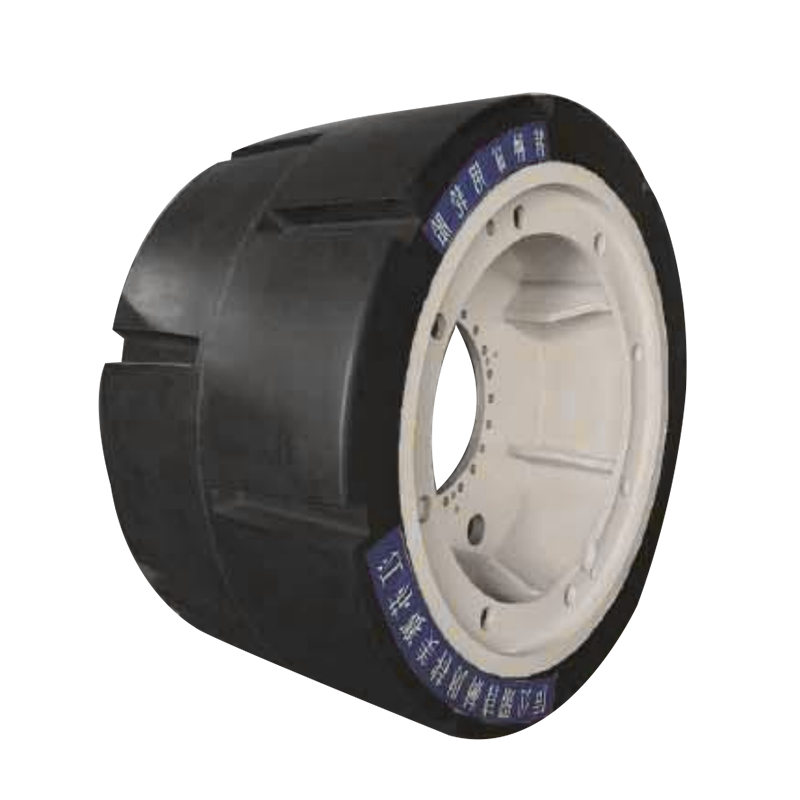What is a solid tire?
A solid tire, also known as an airless tire, is a type of tire that, as its name suggests, contains no air. Unlike conventional pneumatic (air-filled) tires, solid tires are manufactured entirely from a solid material, most commonly rubber or a blend of rubber and other polymers, and sometimes with internal reinforcement.
Here's a detailed breakdown:
Construction and Composition
- Homogeneous Material: The fundamental characteristic is that the tire is a single, solid mass. There's no inner tube, no air chamber, and no need for inflation.
- Material Science: They are typically made from highly durable, wear-resistant rubber compounds. These compounds are engineered to withstand significant abrasion, cuts, and punctures.
- Manufacturing Process: Solid tires can be manufactured in several ways:
- Molding: The rubber compound is often molded under high pressure and temperature into the desired tire shape, then vulcanized to achieve its final strength and elasticity.
- Layered Construction: Some designs involve layering rubber compounds around a core or onto a wheel rim, then bonding them together through vulcanization.
- Internal Reinforcement: To enhance strength and stability, some solid tires incorporate steel wire, fabric cords, or other reinforcing elements within the rubber matrix.
- Bonding to Rim: They are often directly bonded or pressed onto a metal wheel rim, ensuring a secure fit that can withstand the stresses of operation.
- "Honeycomb" or "Aperture" Designs: While still considered solid, some innovative designs feature strategically placed holes or apertures (like a honeycomb pattern) within the tire's structure. These are designed to provide a slight degree of cushioning, reduce weight, and dissipate heat, attempting to mitigate some of the traditional drawbacks of solid tires.
Key Characteristics and Advantages
- Puncture-Proof and Damage Resistance: This is the paramount advantage. Solid tires are virtually impervious to punctures, cuts, and tears from nails, glass, sharp rocks, and other debris. This eliminates downtime associated with flats.
- Zero Maintenance: Without air, there's no need for pressure checks, inflation, or worry about slow leaks. This significantly reduces maintenance requirements and operating costs.
- Exceptional Durability and Longevity: Their robust construction means they wear down slowly and last much longer than pneumatic tires, especially in demanding environments.
- High Stability and Load Capacity: Solid tires offer superior stability, particularly for vehicles that carry heavy loads or operate on uneven surfaces. They do not flex or deform under load as much as pneumatic tires, allowing for higher load-carrying capabilities.
- Safety: In certain applications, such as forklifts, the inherent stability and lack of blowouts contribute to a safer operating environment.
- Suitability for Harsh Environments: They are ideal for applications in industries like waste management, recycling, mining, construction, and ports, where debris, sharp objects, and heavy impact are common.
Disadvantages and Limitations
- Reduced Comfort and Shock Absorption: This is the most significant drawback. Lacking an air cushion, solid tires provide a very harsh ride. They transmit much more vibration and shock from the ground directly to the vehicle's frame, components, and the operator. This can lead to operator fatigue and increased wear and tear on vehicle components.
- Higher Rolling Resistance: Solid tires typically have higher rolling resistance compared to pneumatic tires. This means the vehicle's engine or motor has to work harder to move, leading to:
- Increased Fuel Consumption: For internal combustion engines.
- Reduced Battery Life/Range: For electric vehicles.
- Increased Weight: Solid tires are considerably heavier than pneumatic tires of a similar size, which can affect overall vehicle weight, maneuverability, and sometimes fuel efficiency.
- Heat Buildup: Due to the lack of air for cooling and the higher internal friction from constant deformation, solid tires can generate and retain significant heat, especially during prolonged high-speed operation. Excessive heat can degrade the rubber and shorten the tire's lifespan. This limits their suitability for high-speed applications.
- Limited Speed Capability: The heat buildup and reduced shock absorption mean solid tires are generally unsuitable for vehicles operating at highway speeds. They are best for applications with lower speed requirements.
- Higher Upfront Cost: The initial purchase price of solid tires can be higher than that of pneumatic tires. However, this is often offset by their longevity and reduced downtime.
- Less Traction in Certain Conditions: While durable, their stiffer nature can sometimes lead to slightly less grip on very slippery or loose surfaces compared to a pneumatic tire that can deform and "bite" into the terrain.
Common Applications
Solid tires are purpose-built for specific, demanding applications where their advantages outweigh their drawbacks:
- Forklifts and Material Handling Equipment: The most common application, due to constant threat of punctures and the need for stability under heavy loads in warehouses, factories, and construction sites.
- Skid Steers and Compact Construction Equipment: Operating in debris-strewn environments.
- Airport Ground Support Equipment: Baggage tractors, pushback tugs, etc., where puncture resistance is key.
- Mining Equipment: Particularly for underground vehicles where sharp rocks are prevalent.
- Waste Management and Recycling Vehicles: Where puncturing is almost guaranteed.
- Industrial Carts and Trolleys: For internal logistics.
- Some Electric Scooters and Bicycles: For urban commuting where flat tires are a major inconvenience, though at the expense of ride comfort.
In summary, solid tires are a specialized solution for environments where reliability, durability, and load-carrying capacity are prioritized over ride comfort and high-speed performance. They are a workhorse tire, built to withstand the toughest conditions.
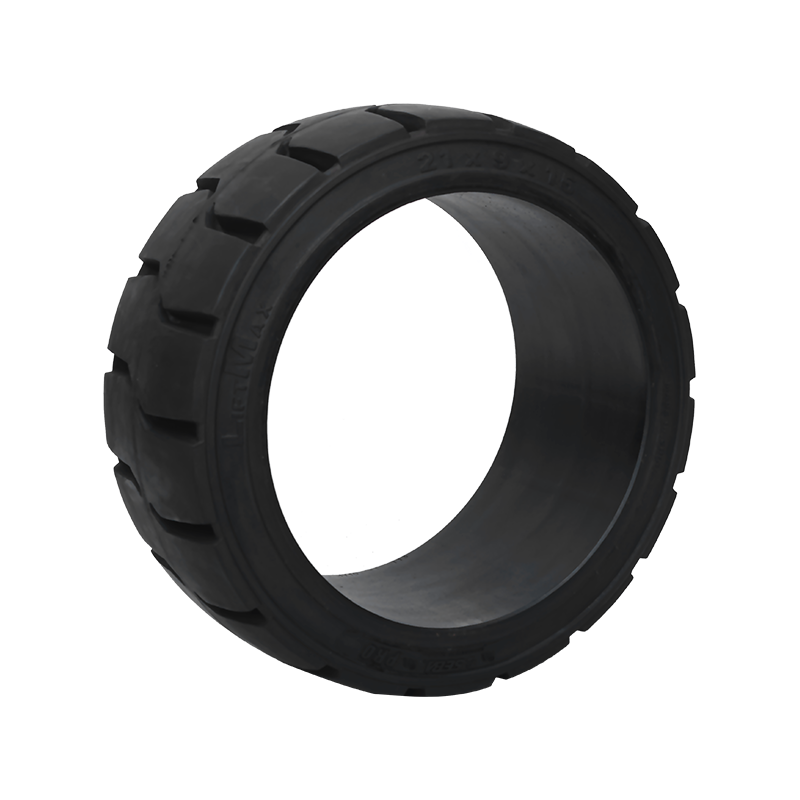
CONTACT US
-

Email: SMT001@saimeite-tyre.com
-

Phone: +86-18451337018No. 1, Renmin South Road, Yandu District, Yancheng City, Jiangsu Province, China

 English
English 한국어
한국어 Français
Français Español
Español
